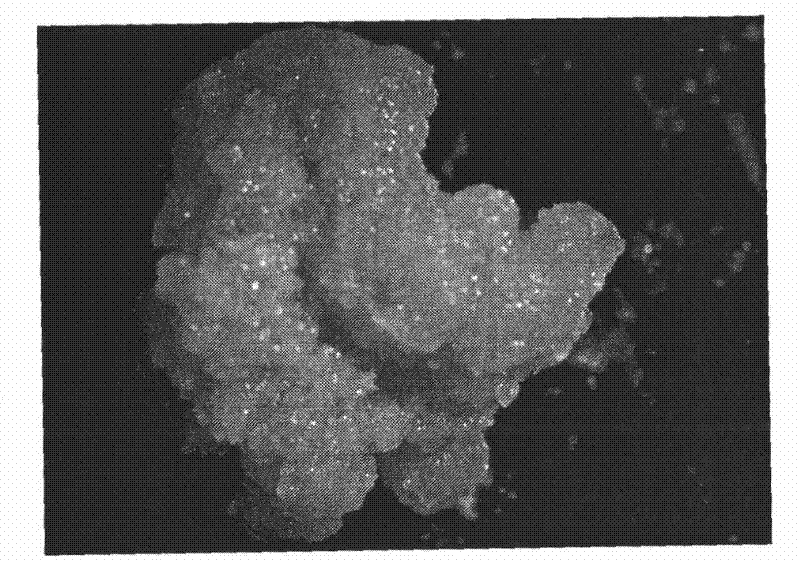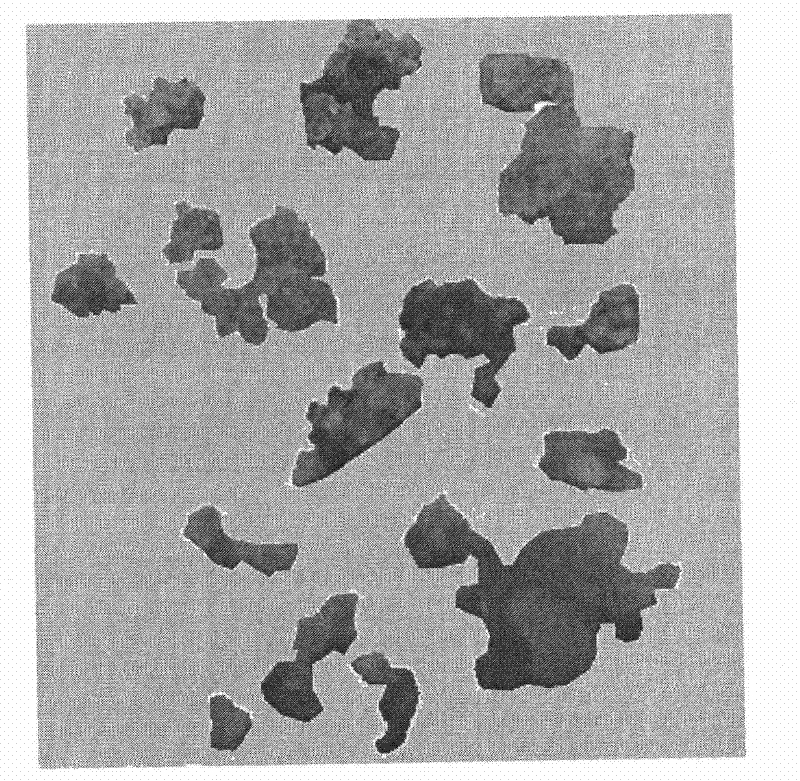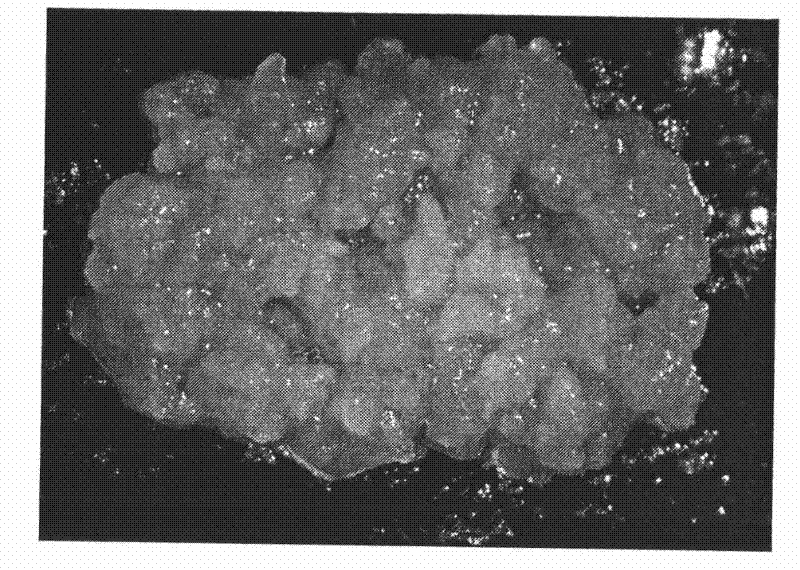High-frequency somatic embryo regeneration culture method for overcoming alfalfa variety genotype limitation
A regenerative culture and genotyping technology, applied in the field of botany, can solve the problems of great difference in genotype, low self-seeding rate, difficulty in solving alfalfa genotype obstacles, etc., to achieve efficient and stable genetic transformation, improve breeding efficiency, and improve The effect of the frequency of regenerated plants
- Summary
- Abstract
- Description
- Claims
- Application Information
AI Technical Summary
Problems solved by technology
Method used
Image
Examples
specific Embodiment approach
[0073] figure 1 It is a schematic diagram of Jinda embryogenic callus according to the present invention; figure 2 It is a schematic diagram of Suntory granular embryogenic callus according to the present invention; image 3 It is a schematic diagram of the development of Jinda somatic embryos into globular embryos, pear-shaped embryos and torpedo embryos according to the present invention; Figure 4 It is a schematic diagram of the development of Zhongmu No. 1 somatic embryos into spherical embryos, pear-shaped embryos and torpedo embryos according to the present invention; Figure 5 It is a schematic diagram of embryoid bodies in different stages of Zhongmu No. 1 according to the present invention; Image 6 It is a schematic diagram of the differentiation and aggregation of Jinda embryoid bodies into bud clusters according to the present invention; Figure 7 It is a schematic diagram of the differentiation and aggregation of Suntory embryoid bodies into bud clusters acco...
Embodiment 1
[0131] A. Embryogenesis callus induction medium (improved SH+6mg / L 2,4-D+0.2mg / L 6-BA+30g / L sucrose+0.3%phytagel)+B. Embryo subculture formation medium ( Improved SH+5mg / L 2,4-D+0.2mg / L 6-BA+500mg / L hydrolyzed casein+50g / L sucrose+0.35% phytagel)+C. Embryo maturation and germination medium (improved MS+ 500mg / L hydrolyzed casein + 30g / L sugar + 0.7% agar) + D. Seedling growth acclimatization medium (1 / 2 improved MS + 20g / L sugar + 0.7% agar), the pH of all the above-mentioned media after autoclaving Around 5.8.
Embodiment 2
[0133] A. Somatic embryogenesis induction medium (improved SH+6mg / L 2,4-D+0.5mg / L 6-BA+30g / L sucrose+0.3%phytagel)+B. Embryo subculture formation medium (improved SH+5mg / L 2,4-D+0.5mg / L 6-BA+500mg / L hydrolyzed casein+50g / L sucrose+0.35% phytagel)+C. Embryo maturation, germination and seedling growth medium (improved MS+500mg / L hydrolyzed casein+30g / L white sugar+0.7% agar)+D. Seedling growth and acclimatization medium (1 / 2 improved MS+20g / L white sugar+0.7% agar), the pH of all above-mentioned mediums after autoclaving is at Around 5.8.
PUM
 Login to View More
Login to View More Abstract
Description
Claims
Application Information
 Login to View More
Login to View More - R&D
- Intellectual Property
- Life Sciences
- Materials
- Tech Scout
- Unparalleled Data Quality
- Higher Quality Content
- 60% Fewer Hallucinations
Browse by: Latest US Patents, China's latest patents, Technical Efficacy Thesaurus, Application Domain, Technology Topic, Popular Technical Reports.
© 2025 PatSnap. All rights reserved.Legal|Privacy policy|Modern Slavery Act Transparency Statement|Sitemap|About US| Contact US: help@patsnap.com



